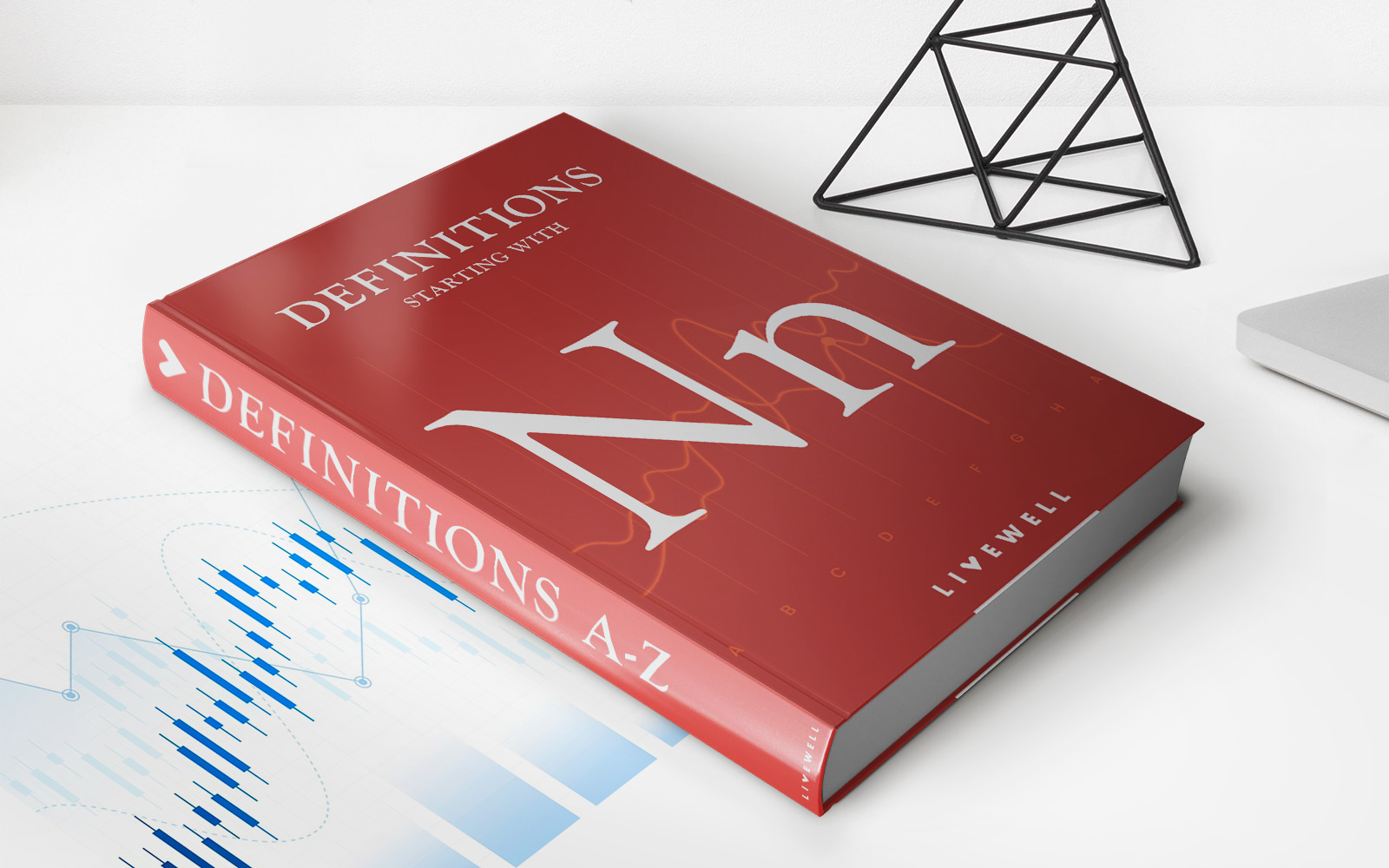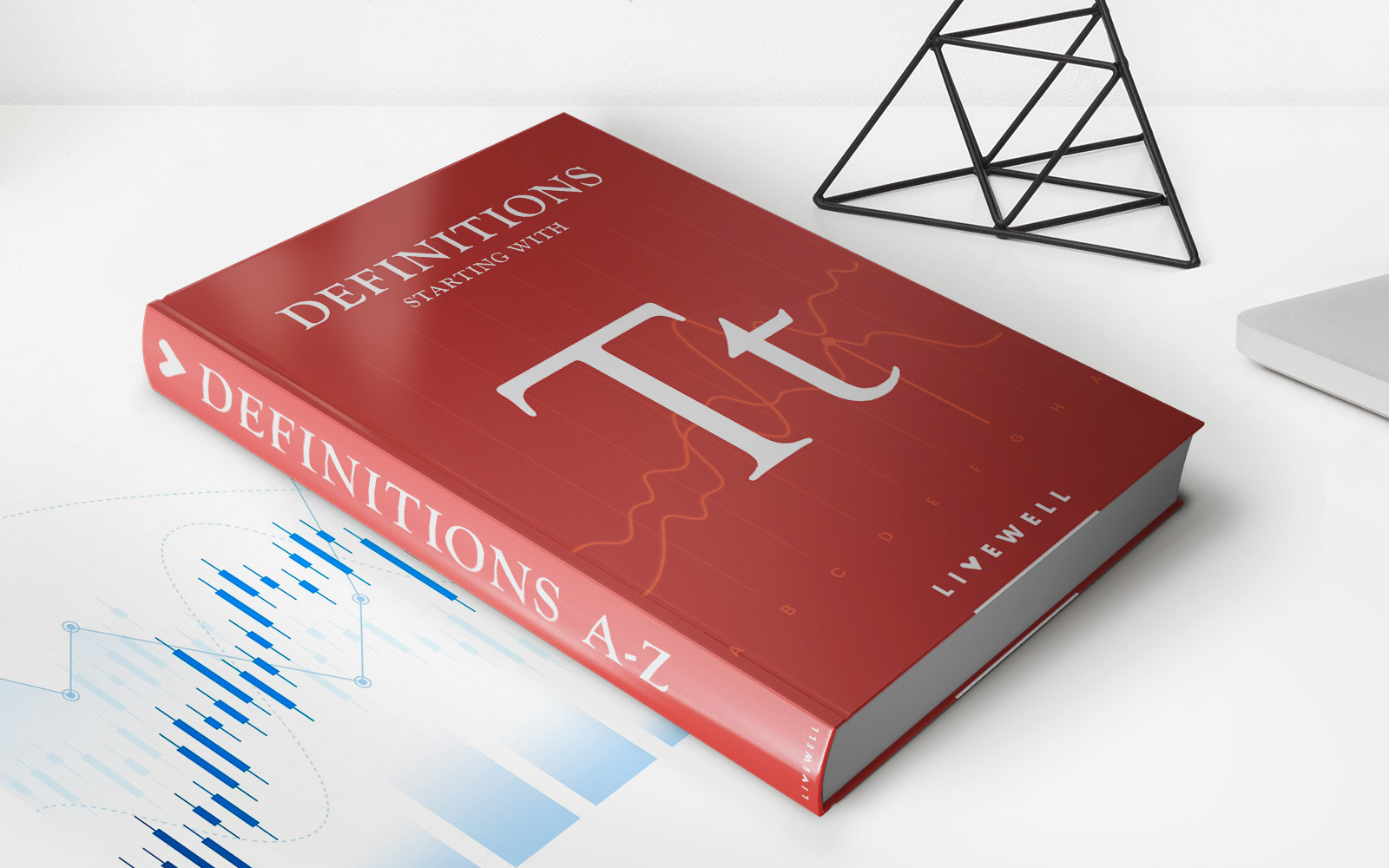Home>Finance>What Does The Term “Negotiable” Mean With Regard To Negotiable Certificates Of Deposit?


Finance
What Does The Term “Negotiable” Mean With Regard To Negotiable Certificates Of Deposit?
Modified: December 29, 2023
The term "negotiable" in finance refers to the ability to transfer or sell a negotiable certificate of deposit to another party. Find out more about negotiable certificates of deposit in this article.
(Many of the links in this article redirect to a specific reviewed product. Your purchase of these products through affiliate links helps to generate commission for LiveWell, at no extra cost. Learn more)
Table of Contents
Introduction
When it comes to the world of finance, there are numerous terms and concepts to understand. One such term is “negotiable,” and it holds particular significance in the realm of negotiable certificates of deposit (CDs). This article aims to shed light on what this term means in relation to negotiable CDs, providing a comprehensive understanding of their nature and implications.
Negotiable, in the context of negotiable CDs, refers to a financial instrument that can be transferred from one party to another in a straightforward and hassle-free manner. The negotiability of these CDs allows for ease of buying and selling, making them an attractive investment option for individuals and institutions alike.
In this article, we will delve into the intricacies of negotiable CDs, exploring their characteristics, benefits, and risks. We will also discuss the process of buying and selling negotiable CDs, providing valuable insights for both seasoned investors and newcomers to the world of finance.
Whether you are a seasoned investor looking to diversify your portfolio or someone interested in exploring different investment avenues, understanding the concept of “negotiable” in the context of negotiable CDs will prove immensely valuable. With that in mind, let us explore this fascinating financial instrument in greater detail.
Definition of “Negotiable”
Before diving into the specifics of negotiable certificates of deposit (CDs), it is important to grasp the concept of “negotiable” itself. In the financial context, negotiable refers to a characteristic or quality that enables an instrument, such as a CD, to be freely transferred or sold between parties.
When an instrument is deemed negotiable, it means that ownership or rights associated with it can be transferred by endorsement or delivery. This feature allows for the swift and efficient trading of financial assets, providing investors with liquidity and flexibility in managing their portfolios.
For negotiable CDs, this means that the investor who originally purchases the CD can sell it to another party before its maturity date. The ability to negotiate and transfer ownership of the CD makes it a highly desirable investment vehicle for individuals and institutions.
Furthermore, negotiability also implies that the value of the instrument can be easily determined and agreed upon between the buyer and the seller. This is crucial, as it ensures fair and transparent transactions in the market.
It is worth noting that the negotiability of an instrument depends on several factors, including the applicable laws and regulations of the jurisdiction. Different countries may have varying requirements for an instrument to be considered negotiable, but the essence remains the same — the ability to freely transfer ownership or rights associated with the instrument.
Overall, the term “negotiable” in finance signifies the ease with which an instrument can be bought, sold, or transferred between parties. In the case of negotiable CDs, it enables investors to actively participate in the secondary market, providing opportunities for liquidity, diversification, and potentially maximizing returns.
Overview of Negotiable Certificates of Deposit
Negotiable certificates of deposit (CDs) are a popular financial instrument typically offered by banks and financial institutions. They are issued as evidence of a deposit made by an investor or depositor for a fixed period of time, known as the maturity period.
Unlike traditional CDs, which are non-negotiable and cannot be transferred, negotiable CDs offer the advantage of liquidity and transferability. This means that investors have the option to buy or sell these instruments before their maturity date, allowing for greater flexibility in managing their investment portfolios.
Negotiable CDs function in a similar way to other types of CDs. The investor deposits a certain amount of money with the issuing bank for a predetermined period, usually ranging from a few months to several years. In return, the investor receives a negotiable CD that represents their claim on the deposited amount plus interest over the specified term.
These instruments are typically issued in larger denominations, making them more suitable for institutional investors. However, some banks may offer negotiable CDs with lower minimum investment amounts to cater to individual investors.
Interest rates on negotiable CDs can be fixed or variable, depending on the terms and conditions set by the issuing bank. Fixed-rate negotiable CDs provide a stable interest income over the maturity period, while variable-rate negotiable CDs may offer the potential for higher returns but with the risk of fluctuating interest rates.
The primary advantage of negotiable CDs lies in their negotiability. This feature allows investors to sell their CDs on the secondary market before maturity, providing an opportunity to exit the investment or take advantage of changing market conditions.
Moreover, negotiable CDs can provide investors with a relatively safe and predictable investment option. They are typically considered low-risk investments as they are backed by the issuing bank’s creditworthiness and the FDIC insurance coverage.
However, it is important to note that negotiable CDs carry some level of risk. The value of these instruments can be influenced by changes in market interest rates, and early withdrawal penalties may apply if the CD is sold before maturity.
In summary, negotiable certificates of deposit offer investors the flexibility to buy and sell these instruments on the secondary market, providing opportunities for liquidity and potential capital appreciation. They are a popular choice for institutional investors seeking low-risk investment options with predictable returns.
Characteristics of Negotiable Certificates of Deposit
Negotiable certificates of deposit (CDs) possess several distinct characteristics that make them unique compared to other investment options. Understanding these characteristics is crucial for investors looking to incorporate negotiable CDs into their portfolios. Here are some key features:
Liquidity: One of the most prominent characteristics of negotiable CDs is their liquidity. Unlike traditional CDs, which typically have a fixed term and limited liquidity, negotiable CDs can be bought and sold on the secondary market. This allows investors to access their funds before the maturity date by selling the CD to interested buyers.
Transferability: As the name implies, negotiable CDs are transferable instruments. This means that investors can sell their CDs to other parties without any complications or restrictions. The ability to transfer ownership provides investors with the flexibility to exit their investments or take advantage of better opportunities in the market.
Fixed or Variable Interest Rates: Negotiable CDs can have either fixed or variable interest rates. Fixed-rate negotiable CDs offer a stable interest income throughout the investment period, providing certainty to investors. On the other hand, variable-rate negotiable CDs have interest rates that can change over time, offering the potential for higher returns but with the risk of fluctuations based on market conditions.
Different Maturities: Negotiable CDs come with varying maturity periods to suit different investor preferences. They can range from short-term CDs with maturities of a few months to long-term CDs that extend for several years. This diversity in maturities allows investors to select the duration that aligns with their investment objectives and risk tolerance.
Minimum Investment Amounts: Negotiable CDs typically have higher minimum investment thresholds compared to regular CDs. These higher thresholds are designed to cater primarily to institutional investors. However, some banks may also offer negotiable CDs with lower minimum investments, allowing individuals to participate in these investment opportunities.
Risk and Safety: While negotiable CDs are generally perceived as low-risk investments, they still carry certain risks. The primary risk is the potential for changes in interest rates, which can affect the value of the CD in the secondary market. Additionally, early withdrawal penalties may apply if an investor decides to sell the CD before its maturity date. However, negotiable CDs are typically considered safe investments due to the backing of the issuing bank’s creditworthiness and the Federal Deposit Insurance Corporation (FDIC) insurance coverage.
Secondary Market: Negotiable CDs are actively traded in the secondary market, providing investors with opportunities for liquidity and potential capital appreciation. The secondary market allows investors to buy or sell negotiable CDs at market prices, providing the flexibility to exit an investment or take advantage of favorable market conditions.
By understanding the characteristics of negotiable CDs, investors can make informed decisions about incorporating these investment instruments into their financial strategies. It is essential to assess one’s risk tolerance and investment goals before investing in negotiable CDs to ensure they align with one’s overall portfolio objectives.
Benefits and Risks of Negotiable Certificates of Deposit
Negotiable certificates of deposit (CDs) offer investors a range of benefits, but they also come with inherent risks. Understanding these advantages and potential drawbacks is essential for investors considering negotiable CDs as part of their investment strategy. Let’s explore the benefits and risks associated with negotiable CDs:
Benefits:
- Liquidity: One of the primary advantages of negotiable CDs is their liquidity. Unlike traditional CDs, investors can sell negotiable CDs on the secondary market, providing them with access to their funds before the maturity date.
- Flexibility: The flexibility to buy or sell negotiable CDs allows investors to adjust their investment portfolios based on changing market conditions or their financial needs. This allows for better portfolio diversification and the potential to maximize returns.
- Higher Interest Rates: Negotiable CDs often offer higher interest rates compared to other traditional savings accounts or fixed-income investments. This makes them an attractive option for investors seeking competitive returns on their investments.
- Security: Like traditional CDs, negotiable CDs are considered relatively safe investments as they are backed by the creditworthiness of the issuing bank and are often covered by FDIC insurance. This provides investors with a sense of security and helps to preserve their principal investment.
- Income Generation: With negotiable CDs, investors can enjoy a steady stream of interest income over the duration of the CD. This can be an appealing feature for individuals looking for a reliable source of income.
Risks:
- Interest Rate Risk: Negotiable CDs are subject to interest rate risk. If market interest rates rise after the purchase of a negotiable CD, its value may decline relative to newer issuances offering higher rates. Conversely, if interest rates decline, the investor may miss out on potentially higher returns.
- Limited Liquidity: While negotiable CDs are more liquid than traditional CDs, they still have some limitations. Early withdrawal penalties may apply if an investor decides to sell the CD before its maturity date, which can reduce the overall return on investment.
- Market Conditions: The value of negotiable CDs in the secondary market can be influenced by prevailing economic conditions and investor sentiment. Changes in credit ratings of the issuing bank or market perceptions can impact the liquidity and pricing of negotiable CDs.
- Inflation Risk: Negotiable CDs may not keep pace with inflation. If the interest earned from a negotiable CD does not outpace the rate of inflation, the investor may experience a decline in purchasing power over time.
- Opportunity Cost: By investing in negotiable CDs, investors may miss out on other potentially more lucrative investment opportunities. It is essential to assess the overall risk and return profile of negotiable CDs in relation to alternative investments.
Before investing in negotiable CDs, individuals should carefully consider their risk tolerance, investment goals, and time horizon. Consulting with a financial advisor can help investors make informed decisions and ensure that negotiable CDs align with their overall investment strategy.
How to Buy and Sell Negotiable Certificates of Deposit
Buying and selling negotiable certificates of deposit (CDs) involves navigating the secondary market. While the process may seem complex, it can be broken down into a few straightforward steps for investors. Here’s a guide on how to buy and sell negotiable CDs:
Buying Negotiable CDs:
- Research: Start by researching different banks and financial institutions that offer negotiable CDs. Consider factors such as interest rates, minimum investment requirements, and maturity periods. This research will help you find CDs that align with your investment goals and risk tolerance.
- Select a Broker: To buy negotiable CDs, you will need to work with a broker who has access to the secondary market. Look for brokers with experience in CD trading and a good reputation. They can provide guidance, execute trades on your behalf, and assist with the necessary paperwork.
- Place an Order: Once you’ve chosen a broker, provide them with the details of the negotiable CD you wish to buy. This includes the issuer, maturity date, and any specific requirements. The broker will then search the market for available CDs that meet your criteria.
- Review and Confirm: Once the broker finds suitable negotiable CDs, they will present you with options. Review the details, including the interest rate, maturity date, and any associated fees or penalties. If you’re satisfied, confirm the purchase and follow the broker’s instructions for payment.
- Ownership Confirmation: After completing the purchase, the broker will provide you with a confirmation of ownership, typically in the form of a statement or certificate. This document serves as proof of your ownership of the negotiable CD.
Selling Negotiable CDs:
- Evaluate Market Conditions: Before selling your negotiable CD, assess the current market conditions. Consider factors such as interest rates and investor demand for negotiable CDs. This analysis will help you determine if it is an opportune time to sell.
- Contact Your Broker: Reach out to your broker and inform them of your intention to sell the negotiable CD. Provide them with the details of the CD, including the issuer, maturity date, and your desired selling price. The broker will initiate the selling process on your behalf.
- Price Negotiation: The broker will work to find interested buyers and negotiate the price of the negotiable CD. They will factor in market conditions and the demand for the CD to determine a fair selling price.
- Transfer of Ownership: Once a buyer is found and the selling price is agreed upon, the broker will facilitate the transfer of ownership. This involves updating the ownership records and transferring the funds from the buyer to you, the seller.
- Confirmation and Settlement: After the transfer of ownership is complete, both you and the buyer will receive confirmation of the transaction. The funds from the sale of the negotiable CD will typically be deposited into your brokerage account or transferred to your designated bank account.
It is important to note that the process of buying and selling negotiable CDs may vary depending on your location and the specific requirements of the financial institutions involved. Working closely with a reputable broker is essential to navigate the process smoothly and ensure compliance with all necessary regulations.
By following these steps and leveraging the expertise of a broker, investors can effectively participate in the secondary market for negotiable CDs, buying and selling these instruments to suit their investment objectives and take advantage of market opportunities.
Conclusion
Negotiable certificates of deposit (CDs) offer investors a unique opportunity to diversify their portfolios and potentially earn competitive returns. These financial instruments combine the benefits of traditional CDs, such as security and stability, with the added advantage of liquidity and transferability.
Throughout this article, we have explored the concept of “negotiable” in the context of negotiable CDs and provided an overview of their characteristics. We discussed the benefits they offer, including liquidity, flexibility, potentially higher interest rates, security, and income generation. However, we also highlighted the risks associated with negotiable CDs, such as interest rate risk, limited liquidity, and the potential opportunity cost.
Understanding how to buy and sell negotiable CDs is key to unlocking their full potential. By conducting thorough research, selecting a reputable broker, and following the necessary steps, investors can actively participate in the secondary market and capitalize on market conditions.
It is important to evaluate one’s investment goals, risk tolerance, and time horizon before deciding to invest in negotiable CDs. Additionally, consulting with a financial advisor can provide valuable insights tailored to individual circumstances and goals.
In conclusion, negotiable certificates of deposit present an attractive investment option for those seeking liquidity, flexibility, and potential capital appreciation. They enable investors to actively manage their portfolios by buying and selling these instruments on the secondary market. However, it is crucial to carefully consider the benefits and risks associated with negotiable CDs, along with individual financial goals, before making investment decisions.
By being informed and making thoughtful choices, investors can incorporate negotiable CDs into their overall investment strategies, diversify their portfolios, and work towards achieving their financial objectives.














